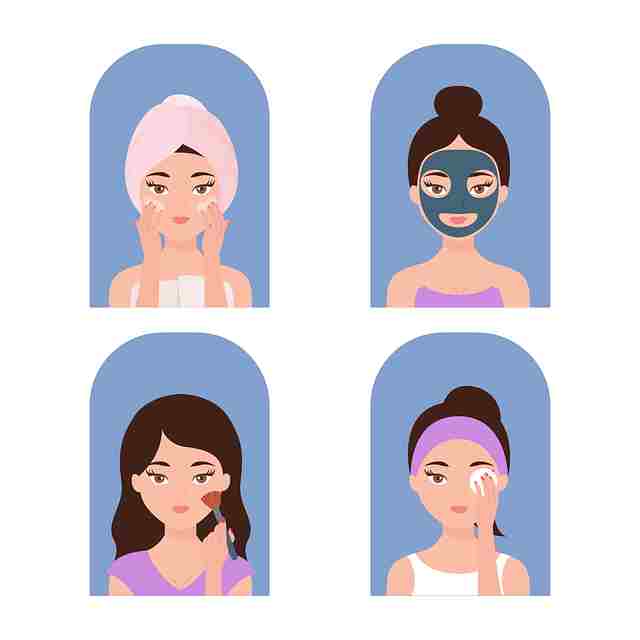Introduction:
As the winter season blankets the world in a frosty embrace, it brings not only the magic of snowflakes and cozy evenings but also a set of unique health challenges. The cold weather, coupled with reduced daylight, often contributes to a spike in various health issues, ranging from the common cold to seasonal affective disorder (SAD). To ensure a robust and resilient immune system during the winter months, adopting proactive healthcare practices becomes paramount. In this article, we will explore effective healthcare strategies to navigate the winter season and promote overall well-being.
-
Boosting Immunity Through Nutrition:
One of the fundamental aspects of winter healthcare is bolstering the immune system to ward off infections. Legitimate sustenance plays a critical part in accomplishing this.. During the winter months, focus on consuming a well-balanced diet rich in vitamins and minerals. Vitamin C, found in citrus fruits, and zinc, present in nuts and seeds, are particularly crucial for immune function. Including a variety of fruits, vegetables, whole grains, and lean proteins in your diet can provide the necessary nutrients to keep your immune system robust.
-
Staying Hydrated:
Despite the chilly weather, staying hydrated is just as important in winter as it is in summer. The dry air and indoor heating systems can lead to dehydration. Opt for warm beverages like herbal teas, soups, and broths to not only keep you warm but also contribute to your daily fluid intake. Additionally, maintaining proper hydration helps in preventing dry skin and respiratory issues that are common during the winter season.
-
Regular Exercise:
Physical activity tends to decrease during the winter months, often due to the cold weather and shorter days. Nonetheless, keeping a normal workout routine is urgent for general well-being. Exercise not only helps in managing weight but also boosts mood by releasing endorphins. Indoor activities like yoga, pilates, or home workouts can be excellent alternatives if outdoor exercise is not feasible. Bundle up in layers and head outdoors for a brisk walk or engage in winter sports to make the most of the season.
-
Cold and Flu Prevention:
Winter is notorious for the flu and common cold. Practicing good hygiene can go a long way in preventing the spread of these illnesses. Wash hands regularly, use hand sanitizer when soap and water are not available, and avoid touching your face. Getting a flu shot is also a proactive measure to protect yourself and those around you. If you do fall ill, prioritize rest and consult with healthcare professionals if necessary.
The cold weather can be harsh on the skin and hair. Dry, flaky skin and brittle hair are common concerns during winter. Adopt a skincare routine that includes moisturizing to combat the effects of cold winds and indoor heating. Utilize a humidifier to add dampness to the air in your living space. Additionally, protect your skin from the sun’s harmful rays, which can be just as potent in winter. Stay hydrated to maintain skin elasticity and consider using a mild, hydrating shampoo to keep your hair healthy.
-
Managing Seasonal Affective Disorder (SAD):
The decrease in daylight hours during winter can contribute to Seasonal Affective Disorder, a type of depression that occurs at a specific time of year, usually in winter. Exposure to natural light is crucial for regulating mood and sleep patterns. Make an effort to spend time outdoors during daylight hours, open curtains to let natural light into your home, and consider light therapy if you’re experiencing symptoms of SAD. Maintaining social connections and seeking support from friends, family, or mental health professionals can also be beneficial.
-
Adequate Sleep:
Quality sleep is essential for overall health, and the winter season should be no exception. The longer nights can be an opportunity to ensure you are getting enough rest. Keep the bedroom cool, dark, and quiet to encourage good sleep. Establish a consistent sleep schedule and avoid electronic devices before bedtime to promote better sleep quality. Sufficient rest contributes to a strengthened immune system and improved mood.
-
Preventing Winter Injuries:
Icy sidewalks and slippery surfaces increase the risk of winter-related injuries. Take precautions when walking outdoors by wearing appropriate footwear with good traction. Keep walkways clear of ice and snow around your home, and use handrails when navigating stairs. If you engage in winter sports, use proper safety equipment to prevent injuries. Being mindful of your surroundings and taking simple precautions can significantly reduce the risk of winter-related accidents.
Conclusion:
Best Healthcare Practices for the Chilly Season
The winter season presents its own set of health challenges, but with proactive healthcare practices, it’s possible to navigate through these months with vitality and well-being. Prioritize nutrition, exercise, and hygiene to fortify your immune system against seasonal illnesses. Attend to your skin, hair, and mental health with specialized care during the winter months. By adopting these healthcare practices, you can embrace the beauty of winter while ensuring your body and mind remain resilient and healthy.



Average Rating